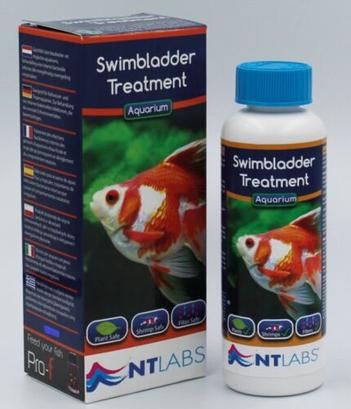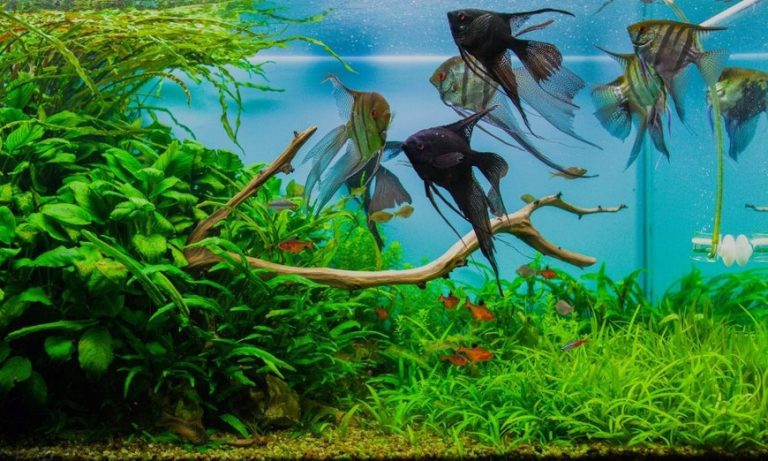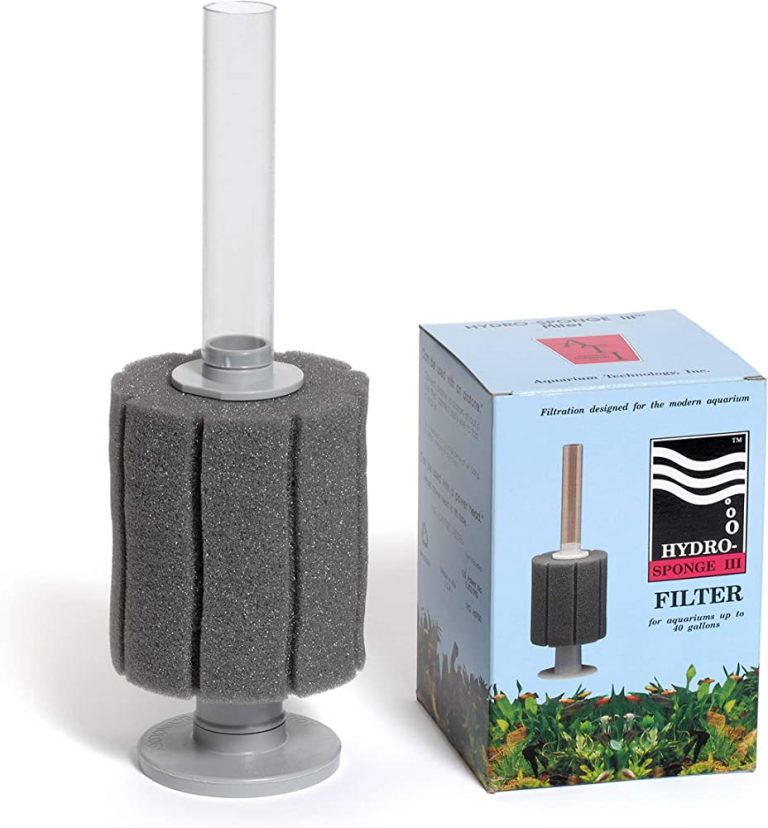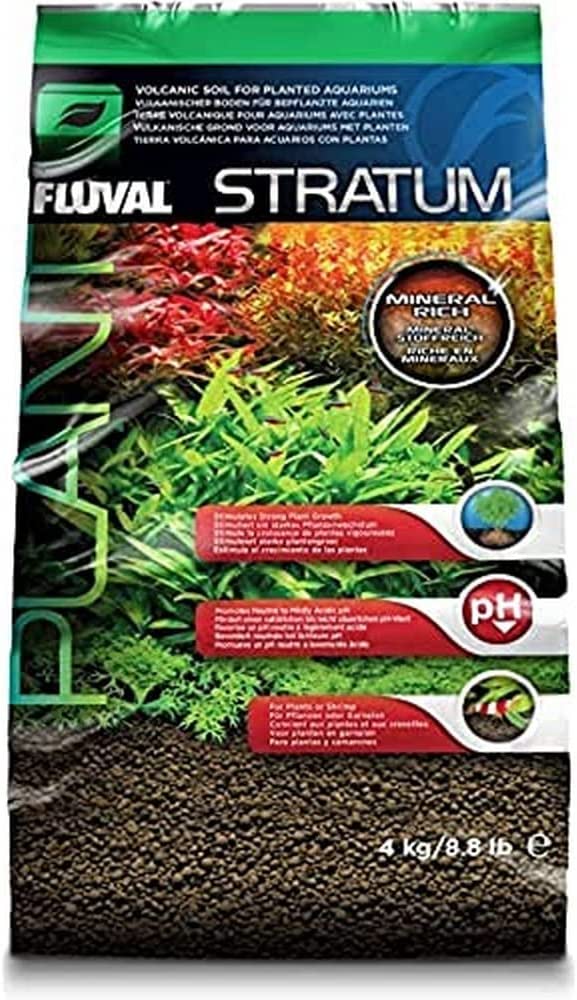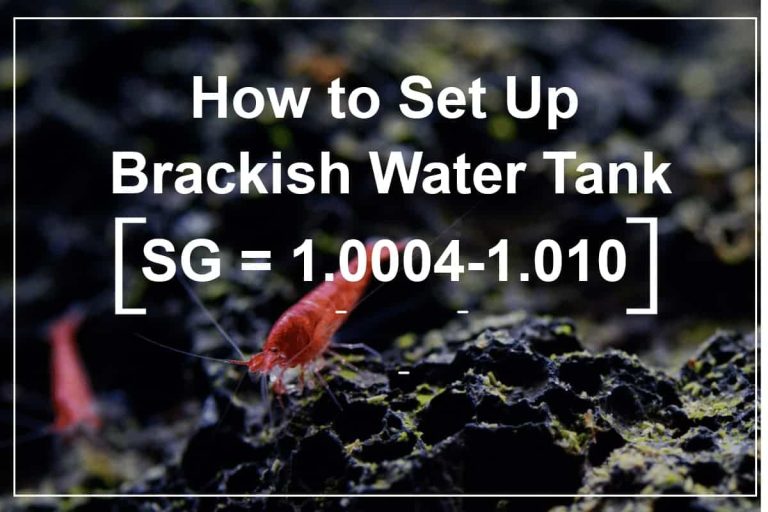Epsom Salt Vs Aquarium Salt: Which is the Ultimate Winner?
Epsom salt and aquarium salt are two different substances used for different purposes in fish tanks. Epsom salt, also known as magnesium sulfate, is a mineral that is commonly used as a laxative for humans and can also be used to treat certain ailments in fish, such as bloating or constipation.
Aquarium salt, on the other hand, is a mixture of different minerals and salts specifically designed to recreate the natural environment of fish and promote their overall health and wellbeing. It is important to note that epsom salt and aquarium salt should not be used interchangeably, as they serve different functions in a fish tank.
In this article, we will take a closer look at the differences between epsom salt and aquarium salt and how to properly use them in your fish tank.

Credit: www.countrymax.com
Understanding The Differences Between The Two
Epsom salt vs aquarium salt: understanding the differences between the two
Have you ever heard of the terms epsom salt and aquarium salt? As a fishkeeper, these two substances are key components that you may come across in your pet care routine. Both have unique properties that affect the water chemistry differently.
Therefore, it is crucial to understand their differences before using them in your aquarium. In this segment, we will discuss in detail the chemical composition differences and how they affect water chemistry.
Epsom Salt Explained
Epsom salt, also known as magnesium sulfate, is a crystal-like substance composed of magnesium, sulfur, and oxygen. It gets its name from the town of epsom in the uk, where it was discovered. This substance is popular for its various practical uses, including healthcare, gardening, beauty, and aquariums.
The benefits of using epsom salt in your aquarium are numerous, such as promoting plant growth, aiding in healing fish, and preventing infections. However, before adding epsom salt to your aquarium, it is vital to understand its effect on the water chemistry.
- Using epsom salt will raise the water’s hardness level without affecting the ph level.
- It increases the amount of magnesium and sulfur in the water.
- It may cause the water to turn cloudy initially, but it will settle in no time.
Aquarium Salt Explained
Aquarium salt, also known as sodium chloride, is a type of salt that is specifically made for aquarium use. It is made up of sodium and chlorine ions and is commonly used in freshwater aquariums. Aquarium salt softens water, helps reduce nitrates, promotes fish health, and prevents diseases.
While aquarium salt has its benefits, it is imperative to know how it affects your aquarium’s water chemistry.
- Aquarium salt can increase the water’s hardness level.
- It raises the ph level and alkalinity level, which may not be suitable for certain types of fish.
- It can also disrupt the balance of beneficial bacteria in the aquarium.
Chemical Composition Differences
The primary difference between epsom salt and aquarium salt is their chemical composition. Epsom salt is made up of magnesium, sulfur, and oxygen, while aquarium salt is composed of sodium and chlorine ions.
Another notable difference is their effects on the aquarium’s water chemistry. Epsom salt raises the hardness level and affects the amount of magnesium and sulfur in the water. On the other hand, aquarium salt increases water hardness, raises ph and alkalinity levels, and can disrupt the balance of beneficial bacteria in the aquarium.
How They Affect Water Chemistry
When using epsom salt and aquarium salt in your aquarium, it is crucial to understand how they affect water chemistry. The primary effects of epsom salt on the water chemistry include:
- The hardness level increases
- Magnesium and sulfur content increases
- The ph level remains unchanged
The primary effects of aquarium salt on the aquarium’s water chemistry include:
- The hardness level increases
- Ph and alkalinity levels elevate
- Beneficial bacteria levels can be disrupted
Understanding the differences and effects of epsom salt and aquarium salt on your aquarium’s water chemistry is paramount. It is essential to choose the right substance for your aquarium and use it correctly. Keep in mind the effects it can have on your fish and plants, and monitor the water chemistry regularly.
A well-balanced aquarium is a healthy aquarium.
Utilization Of Epsom Salt For Fish Health
Epsom Salt Vs Aquarium Salt
Maintaining a clean and healthy environment is essential for the well-being of fish, and selecting the right type of salt can make all the difference. Two popular choices among aquarists are epsom salt and aquarium salt. While both have their unique properties, it’s essential to understand their primary uses before deciding which one is best suited for your aquarium needs.
Epsom Salt And Swim Bladder Disorders
Swim bladder disorders are common among aquarium fish and can cause them to swim upside down, float or sink to the bottom of the tank. Using epsom salt in the aquarium water can help alleviate this issue.
- Epsom salt contains magnesium, which helps to ease muscle spasms and relieve constipation in fish.
- When added to the aquarium water, it helps regulate the fish’s buoyancy, which is essential for those affected by swim bladder disorder.
Epsom Salt And Stress Reduction
Adding epsom salt to your aquarium can also reduce stress levels in fish.
- The magnesium in epsom salt helps to relax fish’s muscles, making them less stressed.
- It also helps to improve the fish’s overall health by regulating the proper function of enzymes and reducing inflammation.
Epsom Salt And External Parasites
Epsom salt can also be beneficial in treating external parasites commonly found in aquariums.
- When added to the aquarium water, it helps to reduce the number of parasites on the fish’s skin.
- It also helps prevent the parasites from reproducing, reducing the likelihood of an infestation in the aquarium.
Using epsom salt in aquariums has proven to be a good choice for fish health treatment. While its applications might not cover all incidents, it’s a popular alternative for its affordability, availability, and proper results.
Utilization Of Aquarium Salt For Fish Health
Aquariums are not just a decoration; they are a habitat for aquatic life. Maintaining a suitable environment for the fish is crucial for their overall well-being, and a lot goes into it. One of the most widely discussed topics in the aquarium community is whether to use epsom salt or aquarium salt.
In this blog post, we will delve more into the latter. In particular, we’ll discuss how it helps with fish health. We’ll discuss this topic in three main areas: reduction in nitrate levels, improved gill functionality, and treatment of fungal infections.
Aquarium Salt And Reduction In Nitrate Levels
Maintaining, the nitrate levels in an aquarium can be challenging, especially for beginners. It’s crucial to keep track of the amount of food provided and the number of fish in the tank. High nitrate levels can lead to low oxygen levels, which can be fatal for fish.
Aquarium salt acts as a natural tool to regulate nitrate levels. Here’s how adding aquarium salt to your tank can help reduce nitrate levels:
- Aquarium salt absorbs water, reducing the amount of nitrogen in the water.
- It helps in the growth of beneficial bacteria, which are crucial for breaking the ammonia and nitrite and reduce nitrate levels.
- Aquarium salt helps to decrease the frequency and volume of water changes required to maintain low nitrate levels.
Aquarium Salt And Improved Gill Functionality
Gill function is one of the essential mechanisms in fish, as it helps in respiration. The gills filter oxygen from the water and expel carbon dioxide. Gill disease is a common occurrence in fish that leads to reduced oxygen exchange.
Here’s how using aquarium salt improves gill functionality:
- Added aquarium salt improves the osmoregulation process, which helps fish regulate their body fluids, improve metabolism, and maintain healthy gill functions.
- Using aquarium salt protects fish from nitrite toxicity, by reducing the nitrite uptake through the gills
- It’s an effective remedy for dangerous respiratory infections by killing parasites that settle in the gills.
Aquarium Salt And Treatment Of Fungal Infections
Fungi are common external invaders in aquariums, which can lead to many illnesses such as ich; it can be fatal for the fish if not treated promptly. Aquarium salt can act as an effective solution to many fungal infections. The salt helps in the following ways:
- It acts as a natural chemical-free remedy to fungal infections.
- Aquarium salt potency increases the fish resistance to parasite infections, which causes fungal infections
- The aquarium salt treatment softens the damaged tissue killing the fungus on the fish’s skin and reduces the threat of infection.
As a responsible aquarium owner, making the right decision on whether or not to use aquarium salt depends on several factors, such as water quality, fish type, and health status. If used appropriately, aquarium salt can be an excellent remedy to various fish health issues.
Remember, before using any supplement, it’s essential to seek advice from a professional.
Effects Of Epsom Salt On Aquarium Water And Fish
Epsom salt is a popular treatment used by fishkeepers all over the world. It is a versatile chemical that can have both positive and negative effects on your aquarium water and fish. In this blog post, we will be discussing the effects of epsom salt on your aquarium and fish.
Positive Effects Of Epsom Salt
When used in the correct dosage, epsom salt can provide numerous benefits to your aquarium and fish. Some of the positive effects of epsom salt are:
- Helps in dealing with constipation: Epsom salt is known to help relieve constipation in fish by acting as a laxative. It works by increasing the amount of water in the fish’s digestive system, softening the stool and helping to ease its passage.
- Helps to reduce inflammation and swelling: Epsom salt can also be used as an anti-inflammatory agent. It can help reduce inflammation and swelling in fish, making it an effective treatment for swim bladder disease and in some cases, dropsy.
- Improves gills functionality: Epsom salt can help improve the functionality of the gills by reducing the stress on them. This makes it an effective treatment for fish breathing difficulties, especially in aquariums with hard water.
Negative Effects Of Epsom Salt
While epsom salt can have positive effects on your aquarium and fish, improper usage or overdosing can lead to negative effects, such as:
- Disruption of osmoregulation: Epsom salt can disrupt the osmoregulation process of fish, leading to longer-term negative effects on their health. A concentration higher than recommended can cause dehydration, stress, and even death in your fish.
- Effect on ph balance: Epsom salt can also change the ph level of the aquarium water. Overuse can increase the hardness of the water, making it difficult for some shrimp, livebearers and other species of fish to survive.
- Effect on microorganisms: Epsom salt can negatively impact the microbiome and beneficial bacteria in your aquarium water. These bacteria play a major role in cleaning the water and maintaining its balance, and the use of too much epsom salt can impede their effectiveness.
Compatibility With Other Aquarium Species
It’s crucial to remember that different fish species react to epsom salt differently, making it necessary to use it cautiously. Some species are more tolerant of it than others, and some may even require it for survival. It’s essential to conduct thorough research on the compatibility of epsom salt with other aquarium species before introducing it into your aquarium.
While epsom salt can be an effective and useful tool in treating your aquarium and fish, it’s vital to use it with care and adhere to the recommended dosage. It can have both positive and negative effects on your aquarium water and fish, so it’s essential to be well-informed and cautious while using it.
Effects Of Aquarium Salt On Aquarium Water And Fish
Epsom salt vs aquarium salt – effects of aquarium salt on aquarium water and fish
Maintaining a healthy and balanced aquarium environment is crucial in keeping your fish happy and thriving. Choosing the right type of salt for your aquarium can make a big difference. In this post, we will explore the key differences between epsom salt and aquarium salt, with a focus on the effects of aquarium salt on aquarium water and fish.
Positive Effects Of Aquarium Salt
Here are some of the benefits of using aquarium salt in your aquarium:
- Stress relief: Aquarium salt can help reduce the stress levels of fish by creating a natural and safe environment for them.
- Wound healing: Aquarium salt has anti-bacterial properties that can help promote wound healing in fish.
- Parasite prevention: Aquarium salt can help prevent parasites from attaching to fish, improving their overall health.
- Water hardness: Aquarium salt helps maintain adequate water hardness levels that are necessary for the survival of fish.
Negative Effects Of Aquarium Salt
While there are several positive effects of aquarium salt, overuse or incorrect usage can have negative consequences. Here are some of the potential negative effects:
- Plant damage: Aquarium salt can damage live aquatic plants in the tank, causing them to wilt or die.
- Incompatible fish: Some species of fish are sensitive to aquarium salt and can suffer health problems or death in its presence.
- Ph fluctuations: Aquarium salt can cause a drop in ph levels, which can negatively impact the health of fish and live plants in the aquarium.
Compatibility With Other Aquarium Species
When using aquarium salt, it’s important to consider the compatibility of other species in the tank. Here are a few examples:
- Scaleless fish: Scaleless fish like loaches and catfish are sensitive to salt and should be avoided in tanks with aquarium salt.
- Dwarf shrimp: Dwarf shrimp should not be kept in a tank with aquarium salt as their molecular structure is sensitive to it.
- Live plants: Live aquatic plants may have difficulty growing in tanks with too much salt.
Aquarium salt can be highly beneficial for the health and wellbeing of fish in your aquarium. However, it’s vital to use the correct amount for your tank and consider the compatibility of other species. By following these guidelines, you can maintain a healthy and balanced aquarium environment that will keep your fish thriving.
Proper Epsom Salt Usage In An Aquarium
Epsom salt vs aquarium salt – proper epsom salt usage in an aquarium
Are you planning on using epsom salt in your aquarium? Epsom salt, also known as magnesium sulfate, has become increasingly popular among fish owners due to its various benefits. However, before adding epsom salt to your aquarium, it is crucial to understand its proper usage and potential risks.
Ideal Dosage And When To Add
- The ideal dosage of epsom salt in an aquarium should be between 1-3 teaspoons per 5 gallons of water.
- It is recommended to add epsom salt to the aquarium when conducting a water change. Dissolve the required amount of epsom salt in a container of warm water before pouring it into the aquarium.
Precautions And Risks
- Always measure the epsom salt dosage accurately, as an excess amount can harm your fish and plants.
- Epsom salt should not be used as a treatment for long periods since it may affect the balance of minerals in the water.
- Avoid using epsom salt in an aquarium with live plants, as it may cause damage to the roots.
- Never mix epsom salt with other medications or water treatments. Always use it alone.
- If you notice any adverse effects on your fish or plants, discontinue the use of epsom salt.
Types Of Fish Ideal For Epsom Salt Use
- Epsom salt is most suitable for freshwater fish that originate from soft water environments, such as bettas, guppies, and tetras.
- Fish that are suffering from stress, bloating, or constipation can benefit from the use of epsom salt. It can help to ease the symptoms and provide relief.
Epsom salt can provide various benefits to your aquarium, but it is crucial to understand the proper usage and potential risks before adding it to your aquarium. By following these guidelines, you can ensure a healthy and thriving aquatic environment for your fish and plants.
Proper Aquarium Salt Usage In An Aquarium
Aquarium salt is a vital component in most aquariums. When used correctly, it helps maintain the overall health of fish and improves their quality of life. However, using the wrong type or dosage can kill them. This blog post will explore the key points of proper aquarium salt use to help you prevent any risks and ensure that your fish live in the best conditions possible.
Ideal Dosage And When To Add
It is essential to use the right amount of salt in your aquarium, as too little won’t provide any benefits, and too much could harm your fish. The ideal dosage should be around one tablespoon of salt per five gallons of water.
However, it’s crucial to remember that different fish species require different dosages. Before adding salt to your aquarium, research the ideal dosage for your fish.
When adding salt, ensure you dissolve it first in a small amount of aquarium water before slowly adding it to your tank. This process will ensure that the aquarium salt fully dissolves and doesn’t settle at the bottom of the tank.
Precautions And Risks
While aquarium salt can be a helpful tool, it’s essential to follow guidelines to prevent any harm to your fish. Below are a few important precautions:
- Never use table salt, as it contains iodine, which can be toxic for fish.
- Do not use salt if you have live plants in your aquarium. Salt kills plant cells and thus can kill the entire plant.
- Salt cannot remove all types of aquarium diseases. Using salt as a treatment will not be effective in treating certain parasitic diseases.
Types Of Fish Ideal For Aquarium Salt Use
Not all fish species can tolerate salt in their water. Below is a list of fish that are commonly known to benefit from adding salt to their aquarium:
- Mollies
- Guppies
- Swordtails
- Betta fish
- Gouramies
- Catfish
Before considering adding salt to your aquarium, verify that the fish you keep are compatible with it. A wrong dosage can cause harm.
Aquarium salt plays a crucial role in maintaining a healthy environment for your fish, but only when used correctly. Remember to research the ideal dosage for your fish species before adding salt, always dissolve it before adding to your tank, and verify compatibility with the fish you have.
Following the necessary precautions will ensure safe and healthy living conditions for your fish.
Frequently Asked Questions On Epsom Salt Vs Aquarium Salt
What Is Epsom Salt And How Does It Differ From Aquarium Salt?
Epsom salt is magnesium sulfate and is used for muscle relaxation and plant growth. Aquarium salt is sodium chloride and is used to improve fish health and reduce stress.
Can I Use Epsom Salt As A Substitute For Aquarium Salt?
No, epsom salt and aquarium salt are not interchangeable. They have different chemical properties and purposes. Using epsom salt in aquariums can harm your fish.
How Do I Know Which Type Of Salt To Use For My Aquarium?
It depends on the needs of your fish. If you want to improve their health and reduce stress, use aquarium salt. If you want to promote plant growth, use epsom salt.
What Are The Potential Risks Of Using The Wrong Type Of Salt In My Aquarium?
Using the wrong type of salt can harm your fish and plants. Epsom salt can cause ph imbalances and disrupt your aquarium’s ecosystem. Aquarium salt can have negative effects on fish species that are not compatible with saltwater environments.
Conclusion
After analyzing the discussion of epsom salt vs. aquarium salt, it is safe to conclude that each type of salt has its unique benefits and drawbacks. Epsom salt is affordable, readily available, and effective in treating various fish health issues.
On the other hand, aquarium salt is beneficial for promoting osmoregulation and maintaining a healthy aquatic environment. It is essential to note that the use of any salt in a fish tank should be done cautiously and in moderation to avoid adverse effects on fish health.
As a responsible fish owner, it is crucial to understand the salinity levels required for specific fish species and follow the correct dosage guidelines. Ultimately, the best choice for your fish depends on their individual needs and conditions. Therefore, it’s highly recommended to consult with a veterinarian or aquarium expert before incorporating salt into a fish tank.
